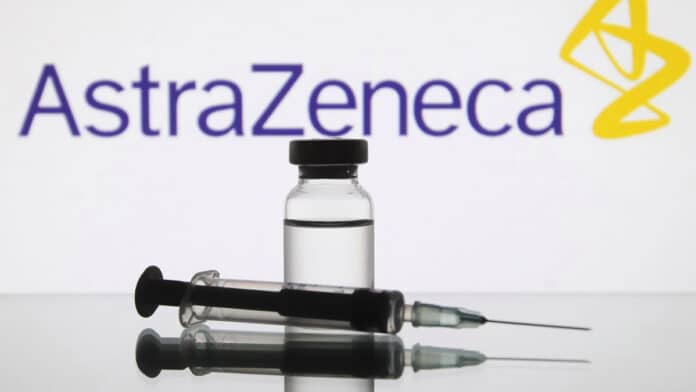Doctors have been told to look out for signs of stroke in patients who received the Oxford/AstraZeneca coronavirus jab after one person died and two others needed hospital treatment.
Two women in their 30s and a man in his 40s suffered blood clots, leading to an ischaemic stroke – the most common kind, caused when a blood clot blocks arteries and stops the flow of blood to the brain.
A team from University College London (UCL) Hospitals NHS Foundation Trust and other organisations stressed the chances of suffering a stroke due to the vaccine are small and a stroke is more common in people who catch coronavirus.
Experts from the National Hospital of Neurology and Neurosurgery at UCL said the NHS must look out for patients with this type of stroke within a month of receiving the COVID-19 jab.
Any patient who suffers from a stroke should be “urgently evaluated” for a very rare syndrome called vaccine-induced thrombosis and thrombocytopenia (VITT).
The condition needs to be diagnosed quickly and managed by a team with a range of expertise, who have quick access to a range of drugs, they said.
The first patient to suffer from a stroke, a 35-year-old Asian woman, experienced intermittent headaches on the right side and around her eyes, six days after taking the vaccine.
She woke up feeling drowsy and with weakness to her face, arm and leg five days later.
Despite undergoing brain surgery and receiving other treatments, the women died.
Another person, a 37-year-old white woman, suffered from headaches, confusion, weakness in her left arm and loss of vision on the left side – 12 days after being vaccinated.
She received a range of treatments and survived.
The third patient, an Asian man aged 43, was admitted to hospital three weeks after receiving his vaccination with problems speaking and understanding language.
He received a platelet and plasma transfusion plus other treatment and remains stable.
There have been 309 cases of VITT from more than 30 million doses of the AstraZeneca vaccine administered, which is about one per 100,000 doses, the experts said.
The UK restricted use of the AstraZeneca vaccine in people aged under 40 this month, over fears it can cause blood clots and anyone aged under 40 will be offered an alternative.
The vaccine rollout has now been extended to people aged 30 and 31, who will be offered the Pfizer or Moderna jab.
“Our study shows that the much more common ischaemic stroke, due to arterial thrombosis blocking blood flow to part of the brain, may also be a presenting feature of vaccine-induced thrombosis,” David Werring, professor of clinical neurology at UCL said.
“Doctors need to be vigilant if patients present with typical stroke symptoms due to a blocked artery any time between days four and 28 post-vaccination.”
Professor Hugh Markus, from the department of clinical neurosciences, at the University of Cambridge, said: “It is important to remember that these side-effects are rare, and much less common than both cerebral venous thrombosis and ischaemic stroke associated with COVID-19 infection itself.”
Dr June Raine, Medicines and Healthcare products Regulatory Agency chief executive said: “No effective medicine or vaccine is without risk.
“These specific kinds of blood clots with low platelets reported following COVID-19 vaccine AstraZeneca remain extremely rare and unlikely to occur.
“Our advice remains that the benefits of the vaccine outweigh the risks in the majority of people.”
PLEASE SUPPORT US FOR JUST £2 A MONTH







